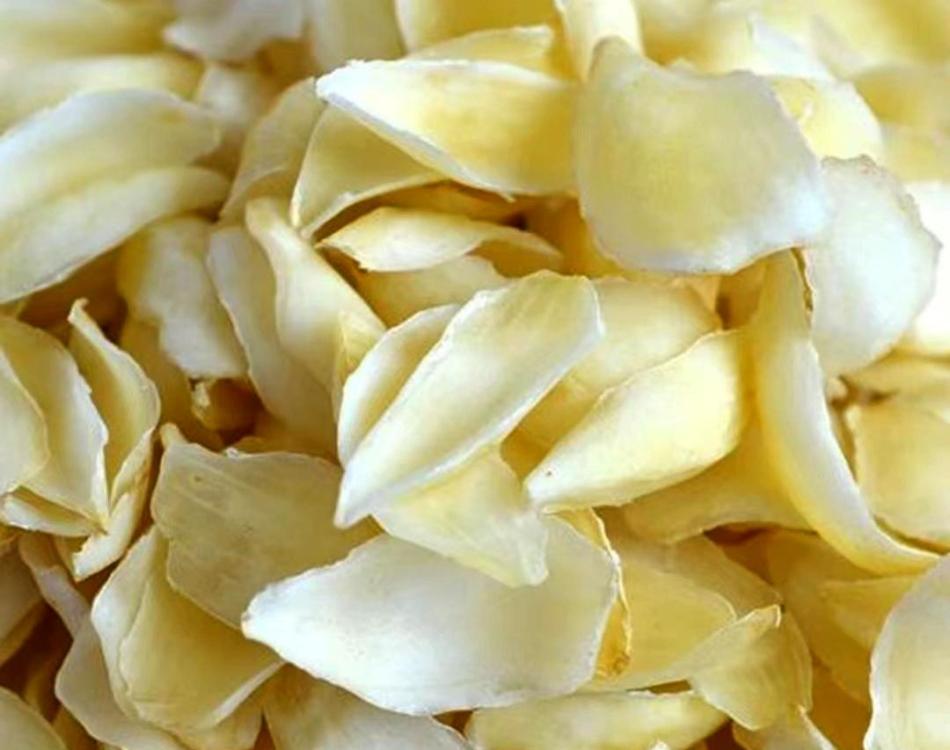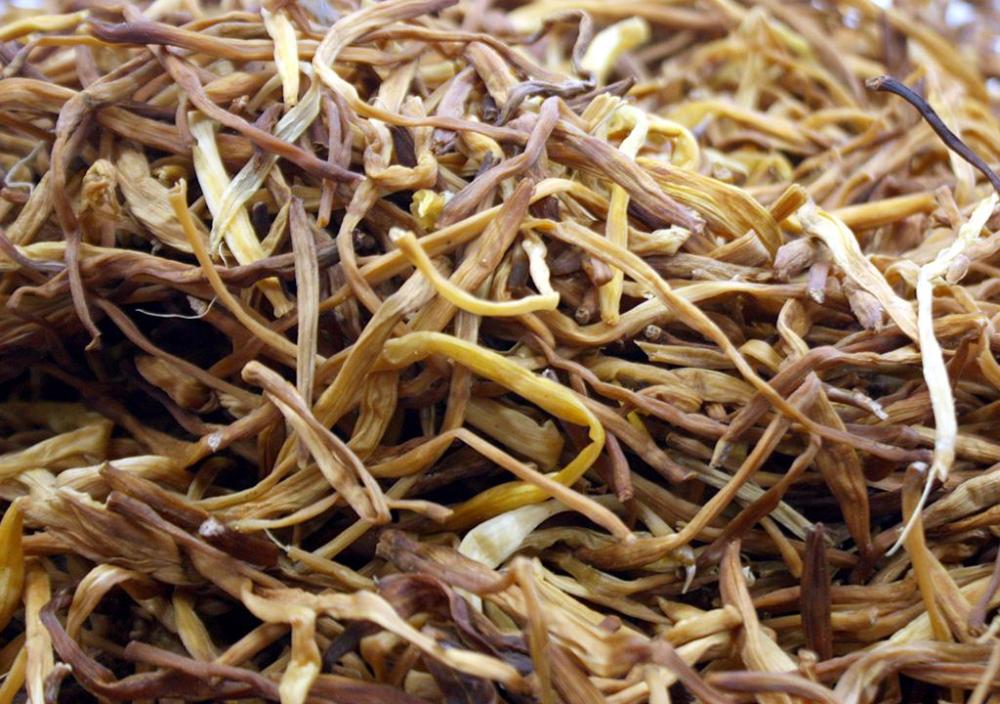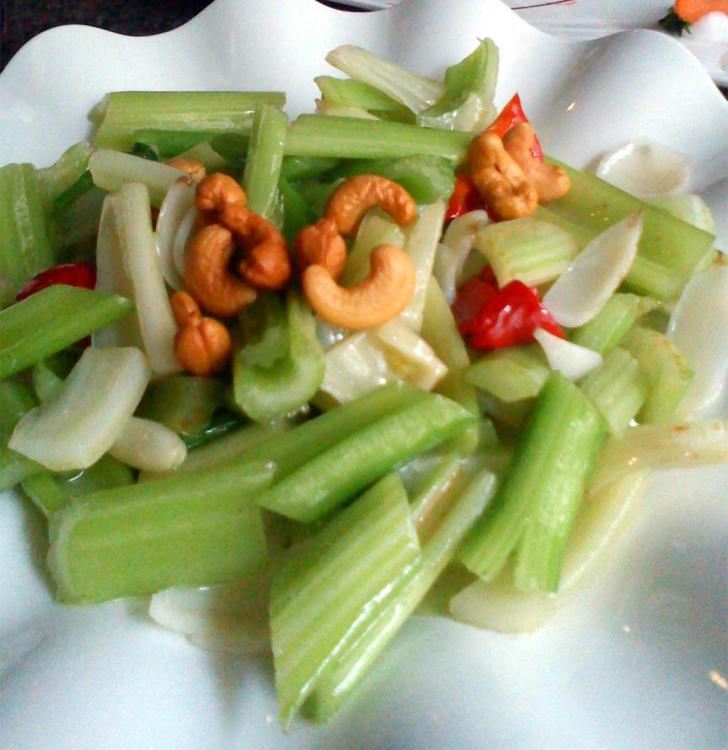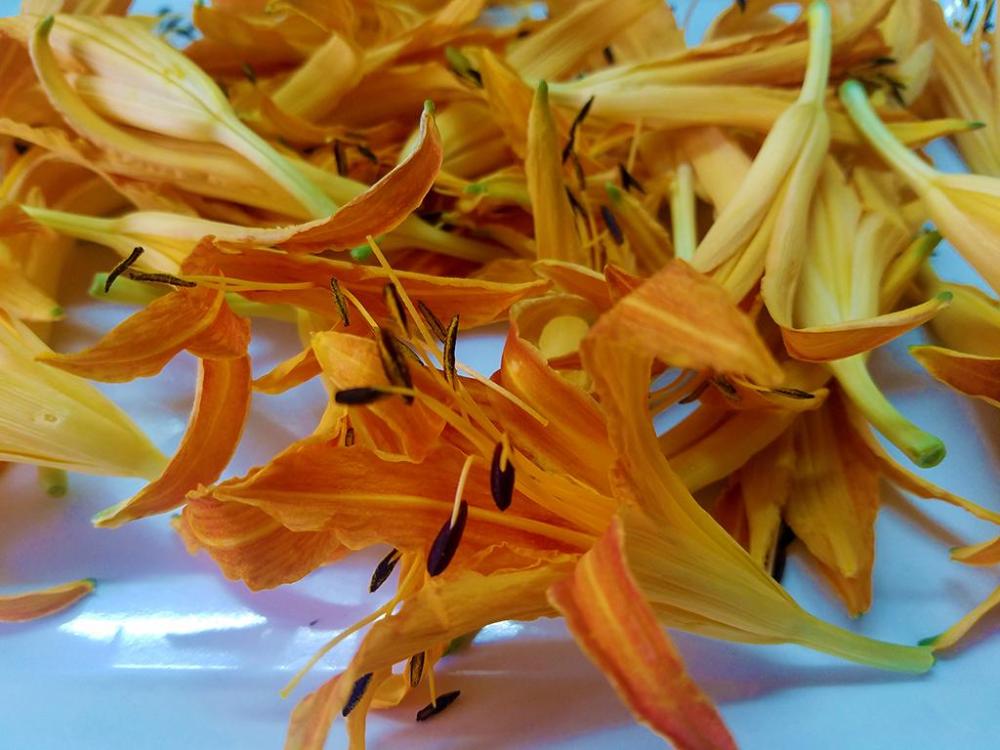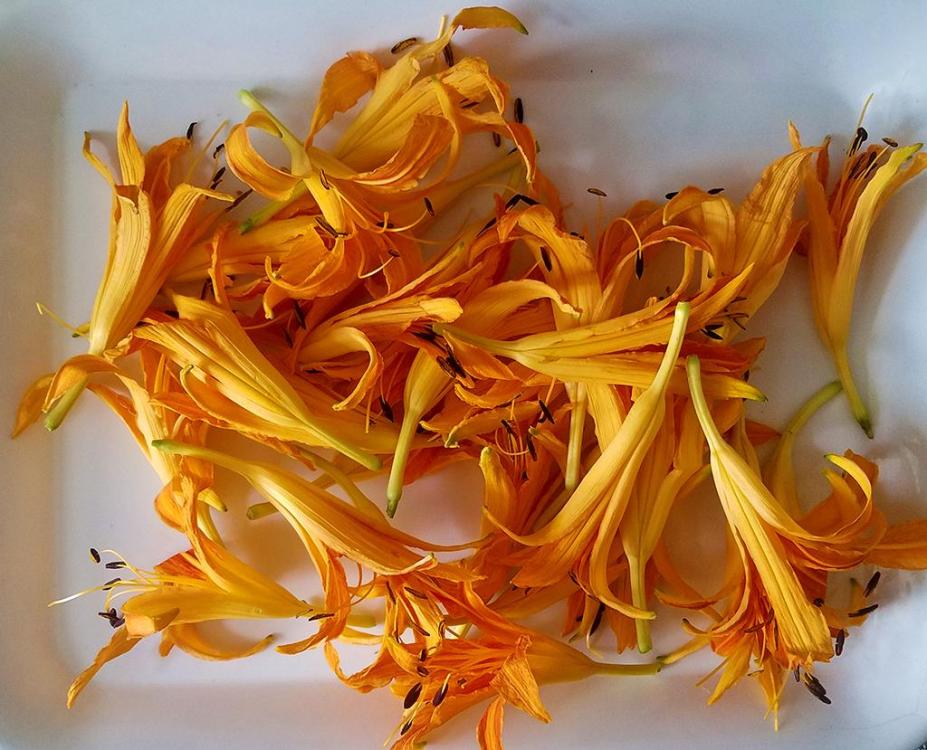14. 百合 (bǎi hé)
In a basket next to the weigh station in the local supermarket, I usually find a bunch of these. They look like the bulbs my mother used to plant in the garden and forget about. And that is what they are. Flower bulbs. But these are for eating and are very popular round these parts.
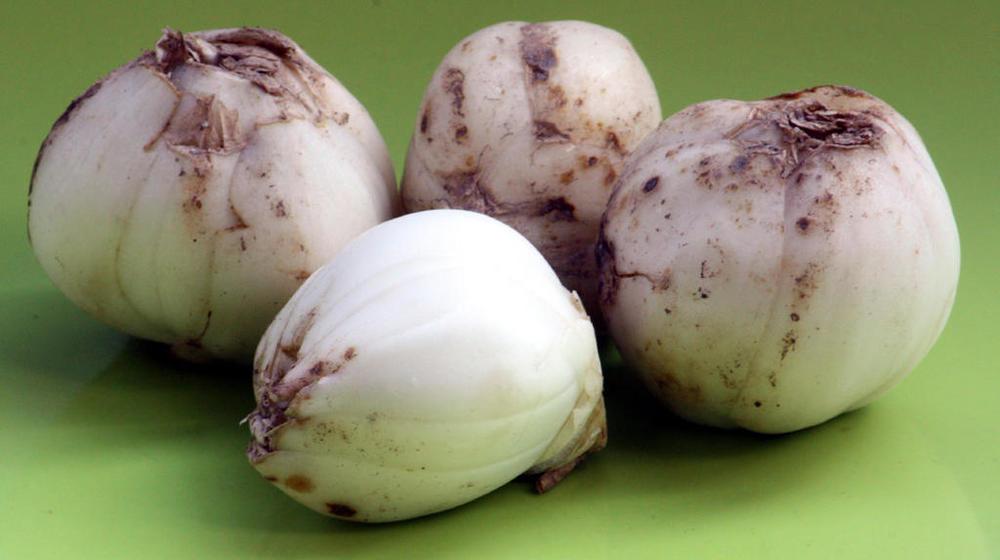
Day Lily Bulbs
What you are looking at is a day lily bulb and day lilies 百合 (bǎi hé) Hemerocallis fulva, are native to east Asia (China, Japan and Korea in particular) and are prized grub for the locals – and for me. They were first mentioned in China in 656 AD. The crisp bulb, shoots, buds and the bright, mild tasting orange flowers are all edible. The flowers, shoots and buds need no cooking, but the locals don’t do raw. Incidentally, day lilies aren’t true lilies which are a different species, Lilium.
The day lily bulb is segmented, a bit like an onion, and the segments are usually stir fried.
Segmented Day Lily Bulb
The flowers are dried and used in soups, hot pots etc.
Dried Day Lily Flowers - 百合干
Almost every banquet features a dish of lily bulb with celery and ginkgo or cashew nuts. This mix is briefly fried and comes out more like a salad than a stir-fry. Very refreshing.
Day Lily Bulb, Celery and Cashew
I’ve only found fresh flowers once (my friends’ were surprised I’d found them at all – they never have) and they were delicious – half in a soup and the remainder stuffed and fried like we do with squash flowers.
Fresh Day Lily Flowers - 百合花
Fresh Day Lily Flowers - - 百合花
Day lilies can be foraged in most of the places we live, but, as always, be sure you know what you are doing and collecting. Some cultivars are poisonous. Much safer to buy them from a reliable source or grow them yourself.


